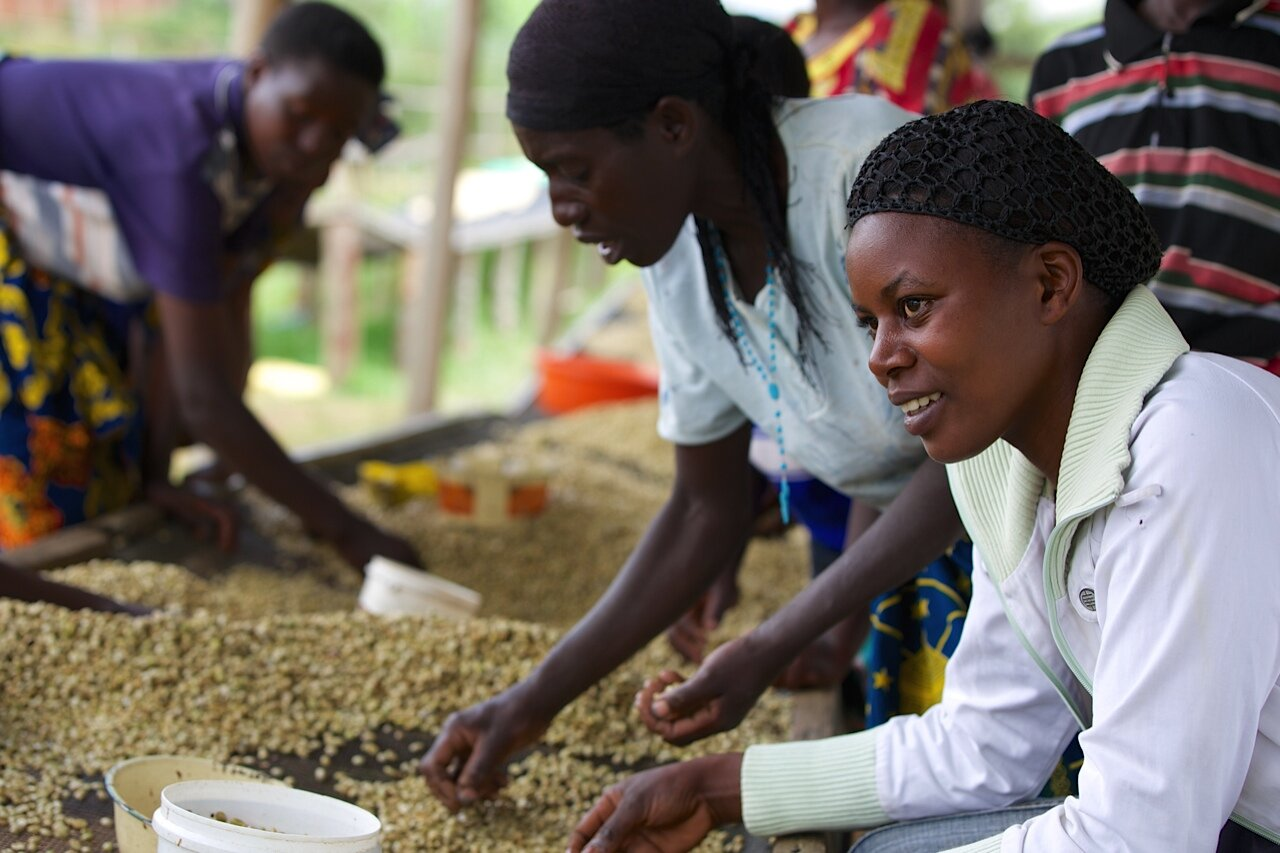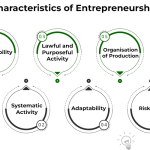Rwandan coffee and domestic violence may seem like disparate topics, but they are deeply intertwined through the lens of women’s empowerment. In the wake of Rwanda’s coffee boom, a significant transformation is occurring within communities, as women take on seasonal employment in cooperative mills. This economic influence on relationships provides women not only with a source of income but also with increased bargaining power within their households. Research shows that as women earn wages from processing coffee cherries, incidents of domestic violence decline, particularly during the demanding harvest season. By understanding the intersection of the Rwandan coffee industry and domestic violence reduction, we can explore vital strategies for promoting economic independence and gender equality in this East African nation.
The dynamics of Rwandan coffee production offer a fascinating case study on gender relations and domestic resilience. As women engage in the coffee sector, they contribute to a growing industry that empowers them economically and socially. With this surge in involvement, we witness a marked reduction in incidents of spousal abuse, reshaping traditional power structures within households. The delicate balance of relationships is influenced by the financial stability that arises from seasonal work, illustrating the profound impact of female labor on domestic harmony. As we delve deeper into this intersection of agriculture and social dynamics, it becomes clear that economic opportunities can play a transformative role in combating domestic violence.
The Rise of Women Empowerment in Rwandan Coffee Production
The Rwandan coffee industry has witnessed an unprecedented transformation in recent years, largely attributable to the empowerment of women within this vital economic sector. With the establishment of cooperative mills, women have increasingly taken on roles that were traditionally dominated by men, such as processing coffee cherries. This shift not only provides women with a steady income but also challenges the existing gender norms that often limit their participation in the formal economy. Through these cooperatives, women are able to exercise greater independence, partake in decision-making processes, and ultimately enhance their bargaining power within households.
Moreover, the integration of women into the workforce has significant implications for societal norms around gender equality. As women gain economic status, it fosters an environment conducive to the advocacy for women’s rights and the reduction of domestic violence. The Rwandan government’s proactive stance on promoting female participation in agriculture, particularly in the coffee sector, showcases a larger movement towards emphasizing women’s empowerment. By elevating the status of women in coffee production, the narrative of female capability and resilience is reinforced, leading to a cultural shift that challenges domestic abuse and advocates for healthier family dynamics.
Economic Influence on Relationships and Domestic Violence
The economic dynamics within households often determine the nature of relationships, particularly regarding the prevalence of domestic violence. Research shows that as women in Rwanda begin to earn an independent income from coffee production, the incidence of domestic violence tends to decrease. This phenomenon can be traced back to women’s enhanced financial power; as they become vital contributors to the family income, their agency within relationships grows. Consequently, the threat of violence diminishes when husbands recognize that their wives’ economic contributions are crucial to the family’s prosperity.
Furthermore, the connection between increased female employment and domestic violence reduction is supported by studies reflecting on how financial strain influences relationships. Access to financial resources can alleviate the economic stress that often leads to conflicts within marriages. For instance, during the coffee harvest season, husbands’ financial reliance on their wives’ labor makes it less likely for them to engage in abusive behavior. Such economic interdependence shifts the power dynamics, bringing domestic issues and financial responsibilities into a shared space that encourages mutual respect instead of aggression. This showcases a broader narrative that underlines the importance of women’s economic empowerment in reshaping familial relationships.
Seasonal Employment Impact on Women and Domestic Violence
Seasonal employment in the Rwandan coffee industry significantly influences women’s roles within their families and communities. During the harvest season, women are employed at coffee mills, allowing them to contribute financially while gaining skills and social connections. This engagement not only improves their household incomes but also fosters a sense of community among women, who often face similar challenges. This collective empowerment plays a crucial role in reducing instances of domestic violence as it builds a network of support among women, enabling them to share experiences and strategies to handle abusive situations.
Additionally, the temporary nature of seasonal employment can alter how intimate partners interact, primarily when financial dependence is at play. Women engaged in coffee processing during harvest periods often create a divide in traditional gender roles, as the need for cooperation in harvesting reinforces partnership dynamics. Economic activities, tied to the phases of coffee production, serve as a protective factor against abuse, signaling shifts in power where women’s contributions become inseparable from household success. Therefore, the influence of seasonal employment not only enhances women’s economic status but also contributes to a decrease in domestic violence incidents, emphasizing the importance of employment as a tool for social change.
The Role of Rwandan Coffee Cooperatives in Reducing Domestic Violence
Rwandan coffee cooperatives have emerged as key players in combating domestic violence while promoting economic growth and women’s empowerment. These cooperatives provide women with access to fair wages and a platform where they can develop skills and leadership roles. By facilitating women’s involvement in coffee production, the cooperatives not only promote an understanding of their rights to work and earn an income but also create a shared sense of purpose, unity, and resilience among female workers. This collaborative framework helps women counteract societal pressures that might otherwise lead to domestic violence.
Furthermore, cooperatives are vital in educating their members about domestic violence laws and women’s rights, ensuring that women are informed and empowered to seek help or to leave abusive relationships when necessary. The cooperative model encourages dialogue about gender-based violence and highlights the importance of financial independence as a means of escaping abusive situations. Thus, through the supportive structure of coffee cooperatives, Rwandan women not only gain economic stability but also the knowledge and networks to combat domestic violence collectively, embodying a proactive approach to creating a safer environment for themselves and their families.
Policy Implications of Women’s Economic Empowerment in Rwanda
The findings from studies on women’s economic empowerment in Rwanda underscore the urgent need for policies that support female participation in the workforce, specifically within key sectors like coffee production. Policymakers must recognize that empowering women economically not only benefits individual families but also promotes broader societal change by reducing domestic violence and enhancing community well-being. Collaborative efforts between the government and coffee cooperatives can create frameworks to support training, skills development, and access to resources that further encourage women’s engagement in the economy.
Additionally, policies must focus on the intersection of economic empowerment and legal protections for women. This includes ensuring that women are aware of their rights under domestic violence laws and have access to support systems when facing abuse. As evidenced by Deniz Sanin’s findings, effective policies can significantly mitigate domestic violence by enhancing women’s financial independence and decision-making capabilities. Thus, integrating gender-sensitive approaches into economic policies is essential for fostering a culture of respect, equality, and safety within Rwandan households.
Challenging Gender Norms Through Economic Participation
Engaging women in the Rwandan coffee industry challenges long-standing gender norms and promotes a more balanced distribution of power within households. As women claim their rights to earn an income, they push against traditional expectations that restrict their roles to homemakers. This shift not only empowers women but also influences men to re-evaluate their perceptions of gender roles. In regions where women are active participants in economic activities, there is a notable decline in domestic violence, indicating a clear link between economic participation and shifts in societal attitudes about gender equality.
Moreover, by redefining the role of women within the coffee sector, there’s an opportunity to create new narratives around femininity and strength, which can inspire younger generations. Educational programs that accompany women’s work in the coffee industry can further dismantle stereotypes about women’s capabilities, instilling a sense of empowerment that resonates beyond the workplace into wider community contexts. As these narratives evolve, they foster a culture that respects women’s autonomy and fundamentally challenges the paternalistic structures that have perpetuated domestic violence.
The Interplay of Economics and Gender-Based Violence
The relationship between economic stability and domestic violence is complex and multifaceted. In regions like Rwanda, where women’s financial contributions to households are increasingly valued through their roles in the coffee industry, the dynamics of domestic violence undergo significant changes. Economic stability often leads to empowered decision-making for women, enabling them to assert themselves within their relationships. This increased bargaining power directly correlates with lower rates of domestic violence, as partners become more likely to view each other as equals rather than one being solely dependent on the other.
Additionally, the economic advantages gained through employment can help couples reduce overall financial stress, a common trigger for domestic conflicts. The unifying force of shared financial goals transforms marital relationships, whereby the economic contributions of both partners are acknowledged and celebrated. In this context, the ability of women to generate income from coffee production not only serves as a deterrent against domestic abuse but also promotes healthier and more equitable relationships, reflecting the need for comprehensive economic policies that prioritize women’s rights and safety.
Future Directions for Rwandan Women in Coffee
As Rwanda continues to cultivate its coffee industry, the future looks promising for women striving for empowerment and safety. Continuous support for women’s roles in coffee production is crucial to sustaining momentum toward gender equality and domestic violence reduction. Initiatives that provide training in sustainable farming practices, marketing, and entrepreneurship can further enhance women’s potential within the coffee sector, encouraging them to assert their voices in both economic and social realms.
Moreover, collaboration between NGOs, government agencies, and community leaders is essential for addressing the systemic issues that perpetuate domestic violence. Advocacy for policy reforms that protect women’s rights, coupled with educational campaigns addressing gender equality, will create a robust foundation for transforming societal attitudes. By fostering an environment where women feel empowered to contribute and speak out against domestic violence, Rwanda can pave the way for a resilient future rooted in equality, mutual respect, and economic sustainability.
Frequently Asked Questions
How does the Rwandan coffee industry impact domestic violence rates among women?
The Rwandan coffee industry significantly impacts domestic violence rates by empowering women economically. Research indicates that women working in coffee mills experience a 29% reduction in domestic violence incidents, primarily during the harvest season when their labor contributes directly to family income.
What role does women empowerment play in reducing domestic violence through the Rwandan coffee sector?
Women empowerment is crucial in the Rwandan coffee sector as it provides women with independent income and increased bargaining power in their households. By earning wages, women can make joint or independent financial decisions, helping reduce domestic violence incidences linked to financial dependence.
In what ways does seasonal employment in the Rwandan coffee industry affect women’s vulnerability to domestic violence?
Seasonal employment in the Rwandan coffee industry decreases women’s vulnerability to domestic violence. During the busy harvest season, women contribute financially, leading to greater economic reliance of husbands on their wives, which can reduce the incidence of domestic abuse.
What economic influences does the Rwandan coffee industry have on relationships and domestic violence?
Economic influences from the Rwandan coffee industry positively affect relationships by providing women with income-generating opportunities. This financial independence enables women to negotiate better within their marriages, thereby reducing the likelihood and incidence of domestic violence.
What evidence supports the reduction of domestic violence among women working in the Rwandan coffee industry?
Evidence from a recent study shows that women working in areas with newly established coffee mills reported a 14% decrease in domestic violence hospitalizations during the harvest season. This suggests that employment in the Rwandan coffee industry directly correlates with lower rates of domestic abuse.
How does the Rwandan coffee cooperative model contribute to women’s economic empowerment and safety?
The Rwandan coffee cooperative model empowers women by providing them with wage-earning opportunities that transform their roles from unpaid laborers to paid workers. This transition not only enhances their economic status but also decreases domestic violence by linking women’s labor to household income.
What is the significance of women’s income in minimizing domestic violence within the Rwandan coffee sector?
Women’s income is significant in minimizing domestic violence within the Rwandan coffee sector as it creates a context where women can threaten divorce if necessary. When husbands depend on their wives’ labor for financial stability, the costs associated with domestic abuse increase, leading to lower incidents of violence.
How do coffee mill operations create economic interdependence that reduces domestic violence in Rwanda?
Coffee mill operations create economic interdependence by ensuring that both husbands and wives rely on the income generated from coffee harvests. This shared economic interest fosters collaboration and reduces the likelihood of domestic violence, as men are less likely to harm wage-earning partners who contribute to family income.
What are the implications of the Rwandan coffee industry for policies aimed at reducing domestic violence?
The Rwandan coffee industry provides critical insights for policies aimed at reducing domestic violence. By encouraging women’s participation in the labor market, particularly in sustainable sectors like coffee, policymakers can design interventions that promote economic empowerment and safety for women.
How do cultural attitudes towards domestic violence shift with women’s earnings in the Rwandan coffee industry?
Cultural attitudes towards domestic violence may shift positively as women’s earnings in the Rwandan coffee industry enhance their decision-making power and status within the household. Increased financial independence often leads to a greater social acceptance of women’s rights, thereby challenging traditional norms around domestic abuse.
| Key Points | Details |
|---|---|
| Economic Empowerment | Working women in Rwanda’s coffee industry experience improved economic conditions leading to reduced domestic violence. |
| Impact of Cooperative Mills | The establishment of cooperative coffee mills increases women’s employment opportunities, enhancing their financial independence. |
| Research Findings | A study indicates a 29% reduction in domestic violence incidents in areas with cooperative mills during the harvest season. |
| Link Between Income and Violence | When women contribute to the household income, they gain bargaining power and can make significant decisions more independently. |
| Cultural Factors | In regions where divorce is stigmatized, domestic violence remains high despite women’s economic roles. |
Summary
Rwandan coffee and domestic violence are intricately linked, as evidenced by recent research indicating that working women in Rwanda who contribute economically through coffee production experience less domestic abuse. The establishment of cooperative mills has not only empowered women economically but has also proven crucial in reducing domestic violence incidents during the coffee harvest season. This correlation showcases the importance of economic independence for women, allowing them greater bargaining power within their households and offering an environment where they can stand against abuse. By understanding this relationship, policies that support women’s employment in sectors like coffee can significantly impact reducing domestic violence, providing a pathway toward both economic and social empowerment.







